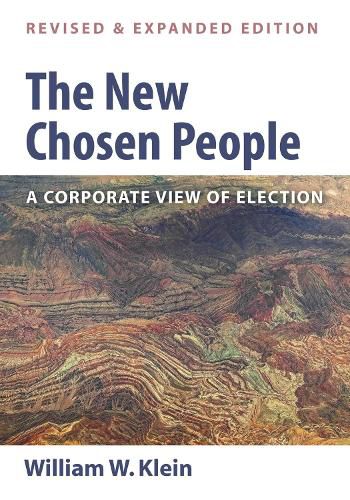Readings Newsletter
Become a Readings Member to make your shopping experience even easier.
Sign in or sign up for free!
You’re not far away from qualifying for FREE standard shipping within Australia
You’ve qualified for FREE standard shipping within Australia
The cart is loading…






This title is printed to order. This book may have been self-published. If so, we cannot guarantee the quality of the content. In the main most books will have gone through the editing process however some may not. We therefore suggest that you be aware of this before ordering this book. If in doubt check either the author or publisher’s details as we are unable to accept any returns unless they are faulty. Please contact us if you have any questions.
Controversy rages on about God’s choosing people for salvation. Are only the few elect? Rather than typically beginning with the preconceptions of systematic theologies, Dr. William Klein takes up this question by searching for a biblical theology of election. He surveys the OT contexts of God’s choosing individuals–prophets, priests, kings–to serve divine purposes, and considers God’s election of the nation of Israel as his special people. This OT study proposes that God’s election is both individual and corporate, but not always determinative. Individuals entered the people of God by birth, but not all the people found salvation. Faith in Yahweh was required. This book traces these elective understandings through the intertestamental literature, identifying continuities and shifts. The bulk of the study, and the heart of the argument, focus on the New Testament. Klein identifies concepts of election, and relationships between writers in the gospels, the Lucan material, Paul’s writings, and the rest. The new covenant, God choosing the church in Christ, emphasizes election as corporate, while the individual election of Jesus’ disciples and of Paul raises the question whether such chosenness is necessarily salvific. In closing, Klein discusses the most engaging and divisive questions around God’s election, and offers a real challenge to today’s church.
$9.00 standard shipping within Australia
FREE standard shipping within Australia for orders over $100.00
Express & International shipping calculated at checkout
This title is printed to order. This book may have been self-published. If so, we cannot guarantee the quality of the content. In the main most books will have gone through the editing process however some may not. We therefore suggest that you be aware of this before ordering this book. If in doubt check either the author or publisher’s details as we are unable to accept any returns unless they are faulty. Please contact us if you have any questions.
Controversy rages on about God’s choosing people for salvation. Are only the few elect? Rather than typically beginning with the preconceptions of systematic theologies, Dr. William Klein takes up this question by searching for a biblical theology of election. He surveys the OT contexts of God’s choosing individuals–prophets, priests, kings–to serve divine purposes, and considers God’s election of the nation of Israel as his special people. This OT study proposes that God’s election is both individual and corporate, but not always determinative. Individuals entered the people of God by birth, but not all the people found salvation. Faith in Yahweh was required. This book traces these elective understandings through the intertestamental literature, identifying continuities and shifts. The bulk of the study, and the heart of the argument, focus on the New Testament. Klein identifies concepts of election, and relationships between writers in the gospels, the Lucan material, Paul’s writings, and the rest. The new covenant, God choosing the church in Christ, emphasizes election as corporate, while the individual election of Jesus’ disciples and of Paul raises the question whether such chosenness is necessarily salvific. In closing, Klein discusses the most engaging and divisive questions around God’s election, and offers a real challenge to today’s church.